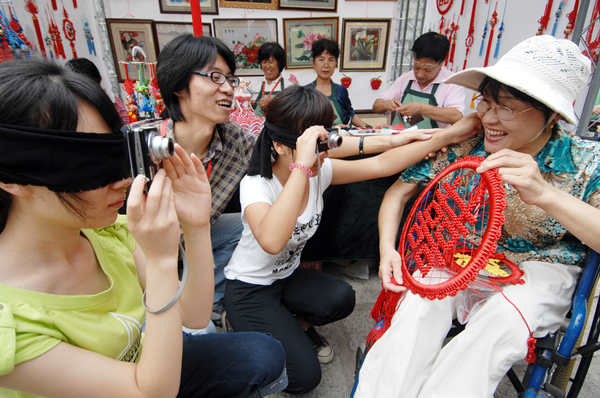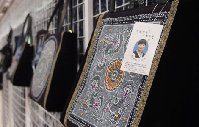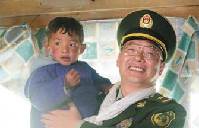Shooting blind
 |
|
A volunteer helps some visually impaired people to take pictures during a cultural activity in Beijing. [Photo by Shou Yiren/China Daily] |
 |
 |
"Let's start by locating ourselves in the environment and sensing the frame of our image," Cai, who is also blind, says." Stretch your arms to touch what's in front of you, on your right and on your left.
"Then let senses guide you to discover the subject you want to shoot, and visualize how they will look in your photos."
Finally, Cai places the camera to his forehead, takes a breath and presses the shutter.
The kids pair up with volunteers without sight impairments to practice discovering images and shooting photos by sound, touch and smell.
Cai, 27, and two other blind trainers organized the photography workshop for visually impaired children in Guangzhou No 2 Children's Palace on Dec 21 and 22.
The training of non-visual photography is part of Cai's work at One Plus One Disabled Person's Cultural Development Center based in Beijing. Non-visual photography is just one of its many projects.
The idea was originally introduced to One Plus One in December 2009 by Photo-Voice, a British charity dedicated to building skills within disadvantaged and marginalized communities using innovative participatory photography as a way of self-empowerment.
Since 2011, Cai and his colleagues have organized six such workshops in Beijing, Guangzhou, Lhasa and San-he city in Hebei province. More than 60 blind people received the training.
"We never expect our students to take pictures that look exactly the same as those taken by sighted people," Cai explains. " It is about expressing, sharing and breaking the stereotype of the blind in society.
"The public usually thinks blind people can't do photography, but it's not true. For us, grass is more than green - it smells fresh and feels lush."
Cai suffered from drug-induced glaucoma when he was 10 and his optic nerves in both eyes began to atrophy. As a result, he lost sight in his left eye and was left with only 20/1,000 vision in the right.
After graduating from Changchun University with a degree in acupuncture and massage, one of only two majors available to blind students, Cai's father managed to find him a job in a hospital in his hometown of Jingzhou, Hubei province.
"In China, most blind people have to work as masseurs because there are few choices for us, but I was really reluctant to do that," he says. "Then I went to Beijing and joined One Plus One, an organization run mostly by blind people."






















